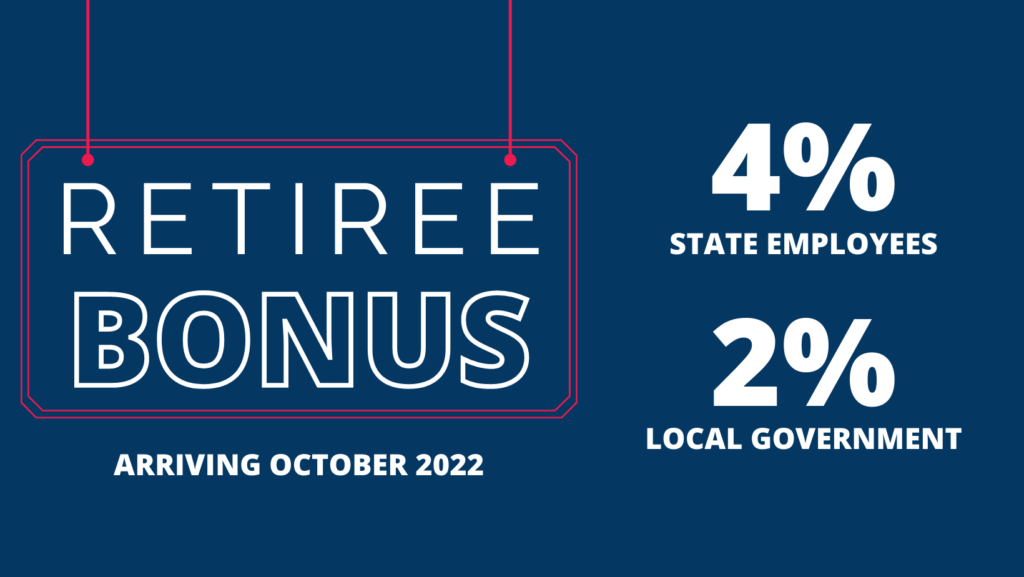September-October 2022
A quick legislative session produced additional bonus money for TSERs but left many other pieces of substantial legislation remaining on the table for the 2023 legislative long session.
Our state’s leadership worked more in concert this year, but differences remain among both caucuses and the executive branch on several major policy items. Among these, Medicaid expansion discussions have continued into the interim, but as we move closer to the November mid-term elections, action will more than likely be
delayed until the session beginning January 2023.
Gov. Roy Cooper signed the 2022 budget in July, one day before it would become law without his signature. The $27.9 billion budget provides pay increases for teachers and state government workers and raises per-hour wages for non-salaried state workers. The budget also provides an additional 1 percent state retiree bonus (TSERs) to an already appropriated 3 percent bonus that will hit bank accounts and mailboxes in October. In all,
TSERs will receive a 6 percent bonus for the 2021 legislative biennium.
A 2 percent bonus for LGERs was approved by the Local Government Retirement System Board of Trustees in January. Local government retirees will receive their bonus also in October 2022. NCRGEA heavily lobbied the board to bring overdue relief for local government retirees.

Expect to see some other public policy items return to light come January. Among these, medical marijuana and
sports betting may come to life.
As for the budget, legislative leadership praised the document as both bipartisan and fiscally responsible. “I’m pleased to see the governor finally signed the budget,” Sen. Joyce Krawiac (R—Forsyth) said. The healthcare, DHHS appropriations, and pensions chairwoman added, “This is a fiscally responsible budget that had bipartisan support. It continues the sensible spending that has guided our state for more than a decade.”
The budget also provides ample rainy day fund increases to abate inflation and provide for emergency relief, additional mental health support for public schools, funds to improve water systems, more money for transportation, and a substantial increase in public works funding for rural areas.


